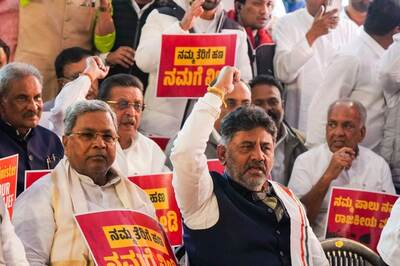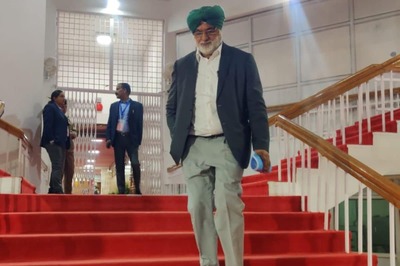
views
New Delhi: Are ‘ghiya’ and ‘tori’ (bottle gourd) boring? Can a burger be a substitute? Certainly not. And if anyone is found saying this now, there will quite literally be a price to pay for it.
Misleading advertisements by companies selling packaged foods with high sugar and salt content will now have to cough up a fine of up to Rs 10 lakh if found guilty, according to the Food Safety and Standards Authority of India (FSSAI).
Taking exception to a full-page advertisement by McDonald’s in newspapers that said, “Stuck with Ghiya-Tori Again? Make The 1+1 Combo You Love”, the central licensing authority and FSSAI have taken cognisance and issued show cause notices for contravening the provisions of Food Safety and Standards (Advertising and Claims) Regulations, 2018. The FSSAI has asked McDonald’s why further action should not be initiated against the company for this.
“Food companies must desist from issuing advertisements/publicity materials which are in violation of food safety,” said FSSAI CEO Pawan Agarwal.
The FSSAI says the availability of safe and wholesome food for all citizens of the country through various means, like education, awareness building and regulatory enforcement, is the need of the hour and in sync with India’s ‘Eat Right Campaign’.
The World Obesity Federation has said that after China, India will have the highest number of obese children at 27,481,141 or 27 million, far ahead of the United States at 17 million by the year 2030. Experts say children make food choices on the basis of advertising and marketing. Hence, irresponsible advertising and marketing is a reason to worry.
The FSSAI says the tendency of food companies to disparage freshly cooked food and vegetables that are healthier is a matter of grave concern. Such advertisements are against national efforts for promoting healthier and right eating habits, especially in the children from a young age.
The World Health Organization (WHO) in its resolution on marketing of food and non-alcoholic beverages to children has asked member-states to reduce the impact on children of marketing of foods high in saturated fats, trans-fatty acids, free sugars, or salt. It also recommends that given the effectiveness of marketing as a function of exposure and power, the overall policy objective should be to reduce both the exposure of children to, and the power of, marketing of foods high in saturated fats, trans-fatty acids, free sugars, or salt.
India is a signatory country but the advisory is rarely followed here. Welcoming the ban on advertising sugary drinks by Singapore, the FSSAI says children and even adults have to make informed choices.
The FSSAI has recently finalised the ‘Food Safety and Standards (Advertising and Claims) Regulations, 2018’. Under these, the advertisements should not undermine the importance of healthy lifestyles and also will not promote or portray their food and beverages as a meal replacement unless otherwise specifically permitted by the FSSAI.




















Comments
0 comment